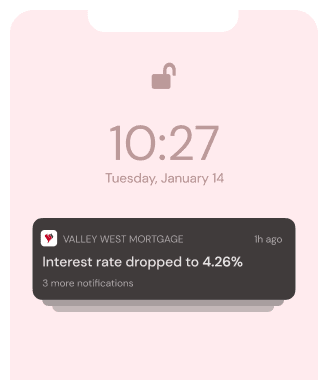Preparing for Your First Mortgage
Buying a house is not something you should do without some good financial knowledge and advice. Your first mortgage should be thoroughly thought out and well planned. Now that you’re thinking of purchasing a home, use the next 12-18 months or so to prepare yourself.
Prepare Your Credit Early
Houses are not cheap. In order to pay for one, you’ll have to get a home loan and pay it off in monthly installments. How much you’ll have to pay is dependent upon your mortgage lender and your credit score. You credit can take a while to build and even longer to repair if it’s damaged, so start working on it early. See an article by Megan Ortiz on how to Establish, Raise, and Maintain your credit score HERE . Get into the habit of paying everything on time even if it doesn’t go on your credit report. Make a detailed list or a spreadsheet of all of your financial responsibilities from utility bills to student loans. If you practice good habits, eventually they will become second nature. Be meticulous about getting things paid on time or early if you can. Practice makes perfect.
Pay Off Your Debt
Loan officers are going to calculate your debt to income ratio, so the less debt you have the better. Things like car notes and credit card payments will be looked at and taken into consideration before a lender will agree to give you a loan. If the total amount of the debt you already have plus the debt you will have after being given a home loan will exceed 43% of your total income, you’re going to have a tough time getting someone to lend to you. So be sure to calculate your debt and pay it down to the lowest amount possible.
Visit Valley West Mortgage and Meet with a Loan Officer
Before even looking at homes, it’s a good idea to sit down and chit chat with a loan officer. Let him or her know your intentions, what kind of home you wish to buy and how much you’re willing to spend. He should be able to run some numbers for you and give you a breakdown of how much you can afford and how much his company would be willing to lend to you, including rates and such.You want to feel comfortable doing business with your chosen mortgage company so ask as many questions as necessary. Any loan officer that isn’t willing to take his time with you and answer your questions isn’t worth your time.
Keep Accurate Records
Start keeping your tax returns, pay stubs, and banks statements in a safe and secure place. In this digital age, it’s easy to order your financial documents from the IRS or from your bank, so be sure to acquire and retain a few copies somewhere at home, as these are documents that you will have to provide to your mortgage company when they are processing your loan.
Don’t Over Spend
As we all know, getting a new home is exciting and I’m sure you’ll be busting at the seams with new decorative ideas for your home. However, keep in mind the hefty amounts of money that have to be spent just to purchase the home (closing costs, down payments, etc.). Don’t go spending all of your extra money, preparing for a new home and then end up without a home to put all of your stuff in because your credit report came back indicating that you don’t know how to handle money.
Last but not Least, Keep a Steady Income!
In order to qualify for a loan, you must have a solid work history. The reason why? Because no one is going to want to lend to you if they don’t know that you have the means to repay them. Having a job is good, keeping a job is even better. Another thing is the type of pay you receive. If you’re on salary where you work, you’re more than likely in a career based job, which means you’ve probably been in your position for a while and you aren’t likely to leave that company any time soon. If you’re on an hourly job, and you haven’t been there for a solid 18-24 months you may have a harder time convincing your loan officer that you aren’t going to default on your loan.
The biggest tip that I can give you is to be prepared. Acquiring a new home is a big step, and it’s not one that should be taken lightly. If you aren’t financially ready to buy a new home, take these few steps to get yourself ready. There is nothing more joyous than owning your own home, you deserve it!



